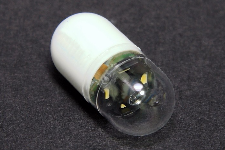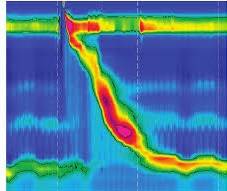DR POH CHOO HEAN |
||
Place of Practice |
CH Poh Digestive & Liver Clinic |
|
Practice Address |
#09-46, Mt Elizabeth Novena Medical Centre, |
|
Practice Website |
||
Specialty |
Consultant Gastroenterologist Sub-specialty Interest: Upper gastrointestinal motility, gastroesophageal reflux disease |
|
Qualifications |
MB.BCH.BAO (Belfast, United Kingdom) 1996 |
|
About Dr Poh
Dr Poh Choo Hean obtained his Bachelor medical degree (MB, BCh, BAO) at Queen's University United Kingdom in 1996. In 2000, he underwent Advance Internal Medicine and Gastroenterology training in Singapore. He completed his advance training and was accredited as a fellow of the Academy of Medicine, Singapore, in both specialties in year 2004 and 2006 respectively.
In 2008, Dr Poh spent a year in the United States, further sub-specializing in the field of upper gastrointestinal motility, and has had numerous publications on reflux disease during his year long stint. He returned to Singapore in 2009 and was promoted to Senior Consultant in 2012.
Specialized Services
1. Evaluation and treatment of diseases related to gastrointestinal tract.
2. Evaluation and treatment of diseases related to liver.
3. Screening for esophageal/stomach/liver/pancreas/colon cancers.
4. Diagnostic and therapeutic upper and lower gastrointestinal endoscopy.
OGD (oesophageal gastroduodenoscope) - Gastroscopy is a common procedure performed to allow direct visualization of the upper gastrointestinal tract (food pipe, stomach and duodenum). A gastroscopy is performed to evaluate symptoms like difficulty swallowing, stomach or chest pain, nausea and vomiting and anemia (low blood count). It can also be used to control ulcer bleeding from food pipe, stomach or duodenal.
Colonoscope - Colonoscopy is an investigation to evaluate inside the large intestine. It is used to investigate symptoms like abdominal pain, blood in the stool, change in bowel habit and screening for colon cancer in those above 50 years of age or those with strong family history of colon cancer. Colonic polyps can be removed during colonoscope.
5. Percutaneous endoscopic gastrostomy for feeding.
A percutaneous endoscopic gastrostomy (PEG) is a procedure for placing a feeding tube directly into the stomach with the assistance of an instrument known as an endoscope. The procedure is performed as a means of providing nutrition to patients who cannot take food by mouth because of underlying condition like stroke. Assessment is usually done prior to insertion to assess if PEG tube placement is suitable for patient.
 6. Capsule endoscopy.
6. Capsule endoscopy.
Capsule endoscopy is a technology that uses a swallowed video capsule to take photographs of the inside of the small intestine. It is commonly used to investigate small intestinal bleeding and sometimes unexplained iron deficiency anaemia.
7. High resolution manometry (HRM) to evaluate the upper GI tract
 HRM is used to assess the function of esophagus (food pipe). Manometry measures the strength and co-ordination of the contractions in the oesophagus during swallow. Usually performed for the following reasons:
HRM is used to assess the function of esophagus (food pipe). Manometry measures the strength and co-ordination of the contractions in the oesophagus during swallow. Usually performed for the following reasons:
a) Difficulty in swallowing
b) Heartburn/reflux
c) Chest pain
8. 24 hour pH impedance study to evaluate reflux disease.
Reflux is common chronic condition that normally present with heartburn and regurgitation (sour and bitter taste in the mouth). It can also sometimes affect the sleeping pattern (interrupted sleep) and hence the wellbeing of patients. Conventional endoscopy can be normal in up to 70% of the patients. Hence the above test is used to measure the acidity within the food pipe and how frequently acid/non-acid is moving into your gullet from your stomach. It is used to investigate patients with persistent reflux symptoms despite taking acid suppression medications. Moreover, it is also used to evaluate patients with chest pain (not due to heart disease), atypical symptoms like chronic cough and hoarseness.
9. General internal medicine - specialist medical screening, hypertension, hyperlipidaemia, diabetes and provide comprehensive assessment, diagnosis and care in a holistic way.


